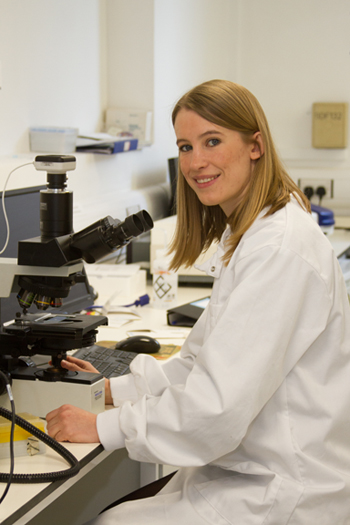Fighting the antibiotic crisis
Did you know that by 2050 antibiotic resistance is predicted to kill more people annually than cancer? You can support innovative research to help slow this global crisis. If you would like to be part of the solution by making a donation, please contact us or make a gift online.
The antibiotic apocalypse
Imagine a world where emergency care and routine surgery are too dangerous because the risk of infection is so high.
Antibiotic resistance affects two million people in the US annually and is predicted to kill 10 million people globally every year by 2050.
Resistance happens when the bacteria that cause infections mutate in response to the use of these medicines, so the treatments are no longer effective. Without a change in society's behaviour and the development of new antibiotics, we are heading towards an era where minor injuries and common infections can once again kill.
Nature has super-weapons

Chemical engineers at Birmingham led by Dr Sophie Cox (pictured right) are designing new systems to enable use of antibiotic alternatives, including natural materials such as honey. The team are also exploring the right dosage of antibiotics to deliver across a range of medical conditions.
Delivering the right dosage is critical to success - we need methods to test what is the optimal release rate and engineer ways of controlling this at infection sites.
Excellence at the University of Birmingham
The University has a history of research excellence in antibiotic resistance. This includes experts such as Professor Laura Piddock, Director of Antibiotic Action and a leading voice in the debate about the lack of new antibacterial treatments.
Sophie’s team are part of our Healthcare Technologies Institute, a group of experts from a broad range of disciplines working together to ensure people live longer, healthier, happier lives.
Your gift will help save lives
Charitable gifts are essential in enabling this ground-breaking research to become a reality. Your donation will help buy laboratory equipment and additional researchers to progress this important work.
Every penny makes a difference. Some examples of what is needed are below:
- A ball mill to grind powders into exactly the same sized granules to enable more accurate testing costs $300. It would only require ten donors to each give $30 to make this happen
- $1,300 would buy laboratory equipment for ten undergraduate students to support this research
- $20,000 would fund a PhD student to work on the project for a year
- Please talk to us about how making a larger gift could accelerate this important research
A gift of any amount will help stall antibiotic resistance. To be a part of this essential medical advancement and help Sophie and her team, please give now. To speak about your gift and the difference it will make, please call or WhatsApp Helen Carey on +44 (0)7966 179425 or get in touch by email. Thank you so much!